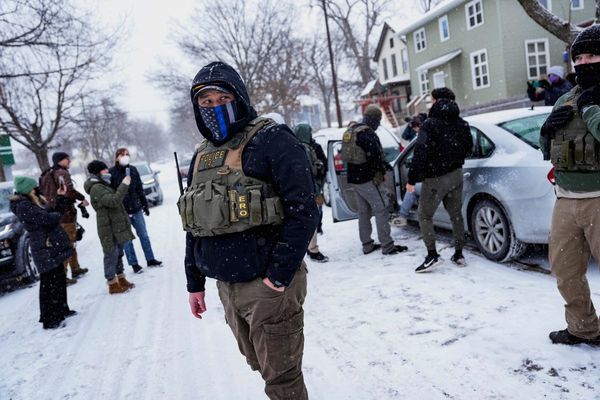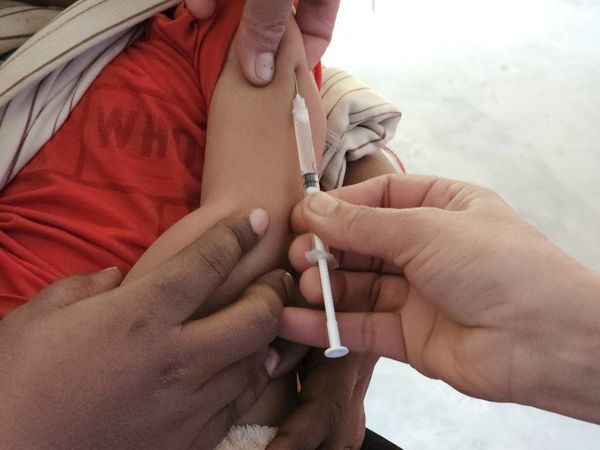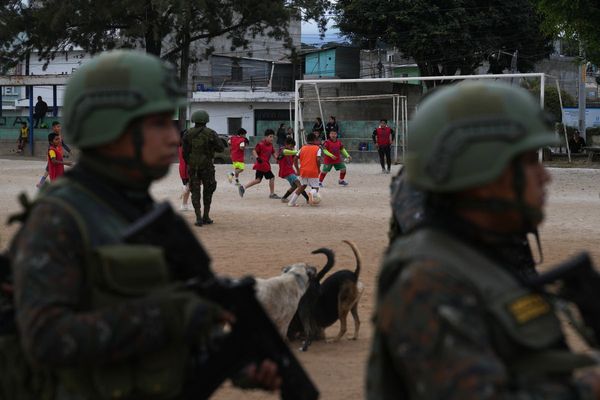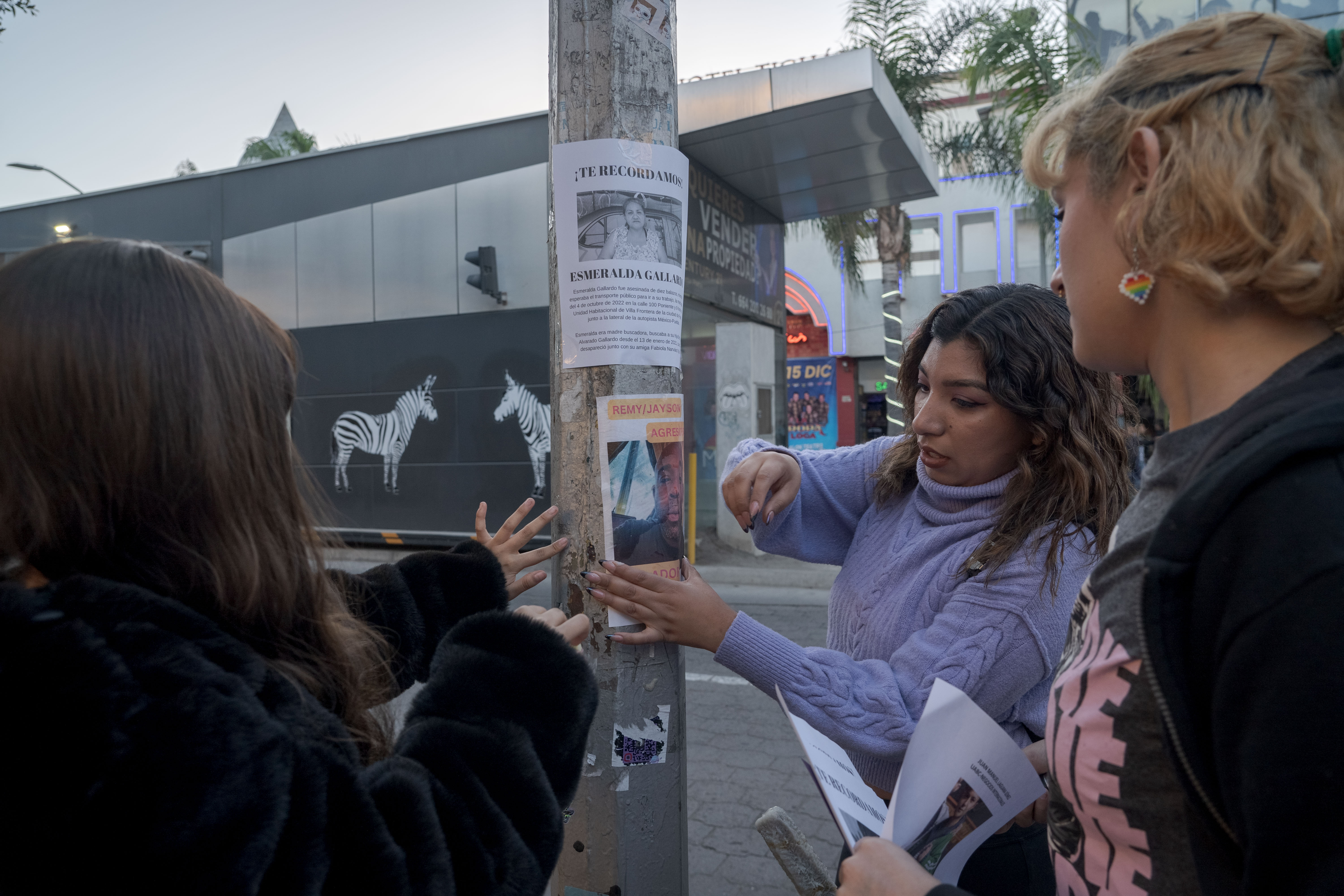
Tijuana, Mexico – Marina figured, if she stayed in Venezuela, her life would be short. Maybe special security forces would kill her. Maybe the military. Maybe the police. Speaking out against the administration of Nicolás Maduro, she feared, would be a death sentence.
“One way or another, they are going to kill you,” she said. “I prefer to leave before they come to kill me.”
Marina felt she and her family had no choice but to flee. Escaping Venezuela was only the start of her troubles, though.
Marina — who asked that her full name be withheld — embarked on the perilous trek many migrants and asylum seekers take: up through Central America to the border with the United States.
There, she hoped her family would find a better life. What happened on the road, however, would leave two of her children with lasting scars.
In the tangled jungles of the Darién Gap, a sliver of land connecting Colombia to Panama, an armed gang captured their travelling party.
“We were separated, men on one side and women on the other,” Marina said. She recalled that gang members started pulling some women out of the group. “That’s when they took my two girls.”
The rest of the family was left behind, helpless. Marina understood that her teenage daughters — one 12, the other 14 — were being sexually assaulted in the recesses of the forest.
“They brought one back after about half an hour, but the youngest one took an hour,” she told Al Jazeera.
Advocates say experiences like Marina’s have become all too common. As migration from South America to the US-Mexico border once again surges, sexual violence is likewise expected to rise, particularly among women and girls.
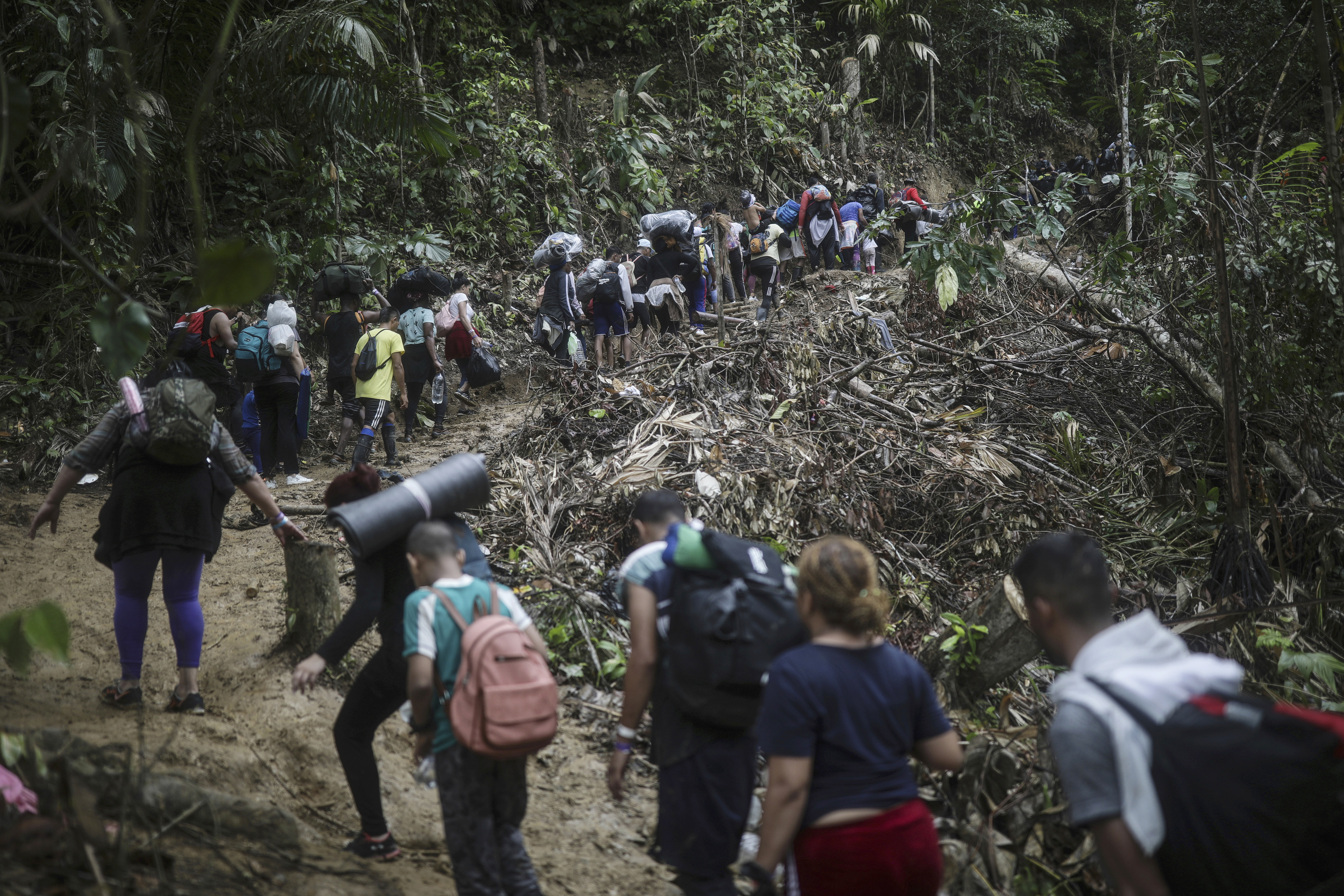
Each year, thousands of people make the journey to the border — but in 2023, officials are documenting record highs.
In Panama, 500,000 people had crossed the Darién Gap as of December, far exceeding the previous year’s overall total of 250,000.
Meanwhile, at the US-Mexico border, the US Customs and Border Protection agency notched 2,475,669 “encounters” with undocumented migrants in 2023 — a total never before surpassed.
That jump has correlated with increased reports of sexual assaults. In 2023, the humanitarian organisation Doctors Without Borders (MSF) treated 397 cases of sexual violence in the Darién Gap. In one week alone, the group saw 59 cases.
Those numbers, reported last month, mark a significant leap over the previous year’s total of 180.
Most of the survivors were adult women. But 6 percent were minors, some as young as 11.
And the real scale of the problem may be even larger. “Under-reporting is enormous,” Doctors Without Borders said in a press release.

Experts say the problem extends well beyond the Darién Gap, with women and girls facing sexual violence all along the migration route — and across the US border too.
But the barriers to reporting sexual assault can be high. Many migrants and asylum seekers are reluctant to report their experiences for a variety of reasons: They may lack immigration papers, making them wary of authorities, or might be unfamiliar with their surroundings.
Through her work with the Refugee Health Alliance (RHA), an organisation based in Tijuana, Mexico, midwife Ximena Rojas observed that even the process of filing a report and undergoing a forensic examination can be traumatising for survivors.
“For a survivor of trafficking, assault or torture, when you conduct an examination, these memories [of violence] may awaken,” Rojas said. “So you have to be very present, letting them breathe and have control over whether to continue or stop.”
She has even learned of migrant women taking preemptive measures before travelling north, on the assumption that they will be raped or assaulted along the way.
One common strategy is to invest in a long-term contraception, administered via injection, something that Rojas has heard called the “anti-Mexico vaccine”.
“It’s very sad that the ‘anti-Mexico vaccine’ means women take for granted that they will face that kind of violence,” Rojas said. “It’s like paying the price for a better life.”

Janira Arévalo, one of the many migrants and asylum seekers waiting in a temporary shelter facility near the border in Tijuana, said she travelled with a friend who took that precaution.
Before leaving their home country of El Salvador, Arévalo said her friend paid a doctor $15 for a three-month contraceptive injection.
“The journey is not easy. There is a risk of being raped, kidnapped,” Arévalo explained. “My friend got a contraceptive injection there in El Salvador, to prevent pregnancy in case of abuse.”
While Arévalo and her friend experienced no sexual violence along their journey, human rights and health organisations are struggling to provide care to those who do.
Diana Arenas, a therapist with RHA, said she encounters survivors who grapple with how to cope.
“It is such an overwhelming situation that sometimes they block these memories,” she told Al Jazeera.
Trying to get the women to confront their traumas can be risky, though. “If I were to open that up right now, a thousand things would come out that cannot be fully addressed at the moment because they are just passing through,” Arenas explained.
To help address the risks of sexual violence, some organisations have set up women-only shelters along migration routes to the US and called for more resources — both to crack down on the violence itself and to help survivors.
Magdalena Bautista, the head of the Centre for Justice for Women, a state-run organisation in Baja California, told Al Jazeera she saw demand for services increase in 2023.
Whereas 47 migrant women came to the centre after experiences with sexual violence in 2022, that number rose to almost 60 this year.

But advocates are also calling on governments to adjust their immigration procedures to lessen the threat of sexual violence in the first place.
A report published in November by the nonprofit Human Rights First found 1,300 reported attacks along the US-Mexico border since May, when US President Joe Biden tightened policies for asylum applications.
Those include incidents of sexual violence. In one case, “a Latin American mother and her minor children” were waiting to seek asylum when “they were kidnapped and sexually assaulted” by a drug cartel. In another, cartel members drugged and sexually assaulted a seven-year-old child, holding him and his mother captive for three weeks.
The nonprofit said the new restrictions in the asylum process have left applicants effectively “stranded in Mexico”, where they are vulnerable to such violence.
Under the new rules, the Biden administration requires most asylum seekers to use its CBP One app to schedule appointments with immigration officials.
But users have reported long wait times and glitchy service, and human rights organisations have warned the new process creates “significant barriers” to asylum access.
Crossing irregularly, however, could result in being barred from the US for up to five years.
“It was horrible. You don’t know if you’ll get out alive. My kids cried and cried,” one asylum seeker in the report said of the situation at the border. A woman in their family had been sexually abused “while waiting for a CBP One appointment”.
“We’ve been waiting for an appointment that doesn’t arrive,” another member of the family said.
